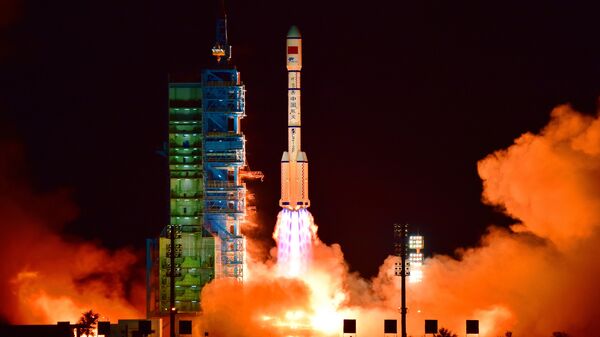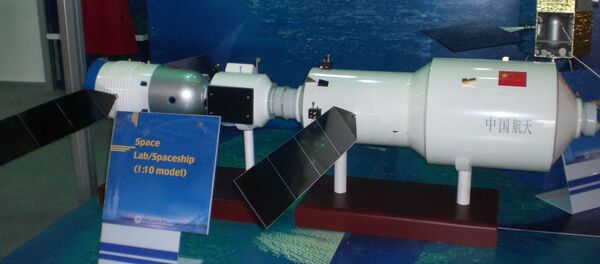The launch of the new satellite comes five years after the country launched its first space station, Tiangong-1, in September 2011.
According to Ming Dong, the leader of the research team in charge of the brain-computer test system, the brain-computer interaction will eventually be the highest form of human-machine communication.
“The brain-computer interaction test system in Tiangong-2 boasts 64 national patents. The research team has long been devoted to the research of brain-computer interactions, previously developing two idiodynamic artificial neuron robotic systems that can help with the rehabilitation of stroke patients,” the publication wrote.
Regarding the use of such brain-computer interaction technology in space, the leader of the research team suggested that it could also help Tiangong-2 astronauts to more easily accomplish their assigned tasks.
For example, the brain-computer interaction can transmit the astronauts' thoughts into operations, while at the same time observing their neurological functions.
Earlier in an interview with Sputnik, Russian military expert, Vasiliy Kashin, said that Tiangong-2 will allow Chinese astronauts to stay in orbit for 30 days, which is longer than ever before in the history of the Chinese space program.
According to the military expert, in the future, a third module is planned for launch, in which a crew of 3 people will be able to stay in orbit for up to 40 days. The refueling technology of the orbiter is also planned to be developed in this module.
It should be noted that to date, China has managed to implement its program, in general adhering to its originally established schedule without any unforeseen accidents.
Thus, it is hoped that with the advent of the private Chinese space station, China will establish a permanent presence in space and will begin to experiment with long-term human experiments required for flights to other planets.




